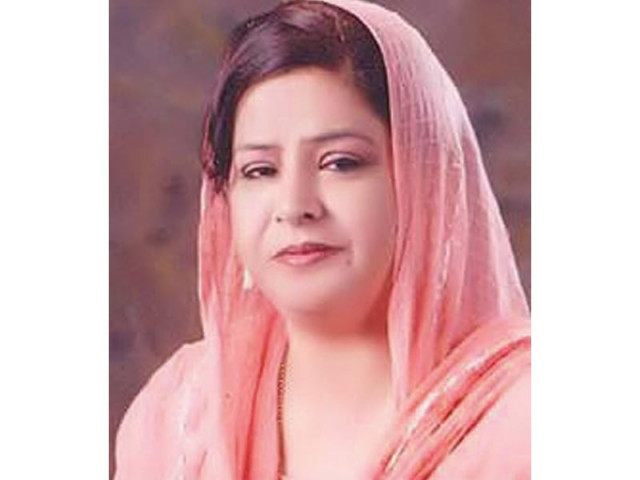Health experts discuss causes of breast cancer
Women advised to regularly visit doctors to ensure the disease is diagnosed before it spreads.

“A woman may ignore her health to become a good mother but this is not good for a healthy society,” said the minister for women’s development, Tauqeer Fatima Bhutto. She was among the health experts speaking at a seminar on Women’s Health, organised by the National Forum for Environment and Health on Tuesday, who discussed different diseases which are commonly found in women and how they could be prevented.
While advising women to take a more active role in keeping their families healthy, she said that every mother should advise her daughter on taking care of her personal hygiene.
Bhutto also spoke about the need to introduce new legislation on women’s health. Criticising the increase in maternity homes and fake doctors, she said that we need to conduct more conferences at the national and provincial level to spread health awareness among women.
A number of eminent specialists were invited to the conference to speak about the symptoms, causes and diagnosis of breast cancer. Health expert Dr Khatija Ansari said that the exact number of people suffering from breast cancer in Pakistan was unknown. “But according to our doctors, out of every 12 women who visit the hospital for a check-up, one has malignant breast cancer.”
Dr Ansari advised women to get their breasts examined every month. “If they [Pakistani women] find something unusual, they try to avoid doing anything about it which becomes problematic for them later,” said Ansari. She pointed out that breast cancer could be controlled if it was detected at an early stage. She also spoke about the three methods of breast examination - self examination, clinical examination and mammography. She advised all women older than 40 years to have the diagnostic test, mammography, every year.
A gynecologist from Jinnah Postgraduate Medical Centre, Dr Haleema Yasmin, said that women should try to keep a gap of two to three years between children. “Women should consult doctors, instead of avoiding them, as they can advise them on family planning and using contraceptives,” she stressed.
She also advised using an intrauterine device as contraceptive. “Intrauterine device is best if it is placed within 10 minutes after delivery and by an expert doctor. It is safe and cost effective. Additionally, it can be removed whenever you want another child.”
The NFEH president, Muhammad Naeem Qureshi, said that 40 per cent of diseases occur due to lack of awareness. “We need to encourage people to keep their environment clean as that is the key to living a healthy life,” he said.
Sindh Assembly Member Farheen Mughal said that the assembly makes laws regarding women’s health but they are not implemented. According to her, female health workers are playing an important role in promoting awareness among women but “need to be trained so we can benefit more from them.”
Published in The Express Tribune, November 9th, 2012.



















COMMENTS
Comments are moderated and generally will be posted if they are on-topic and not abusive.
For more information, please see our Comments FAQ